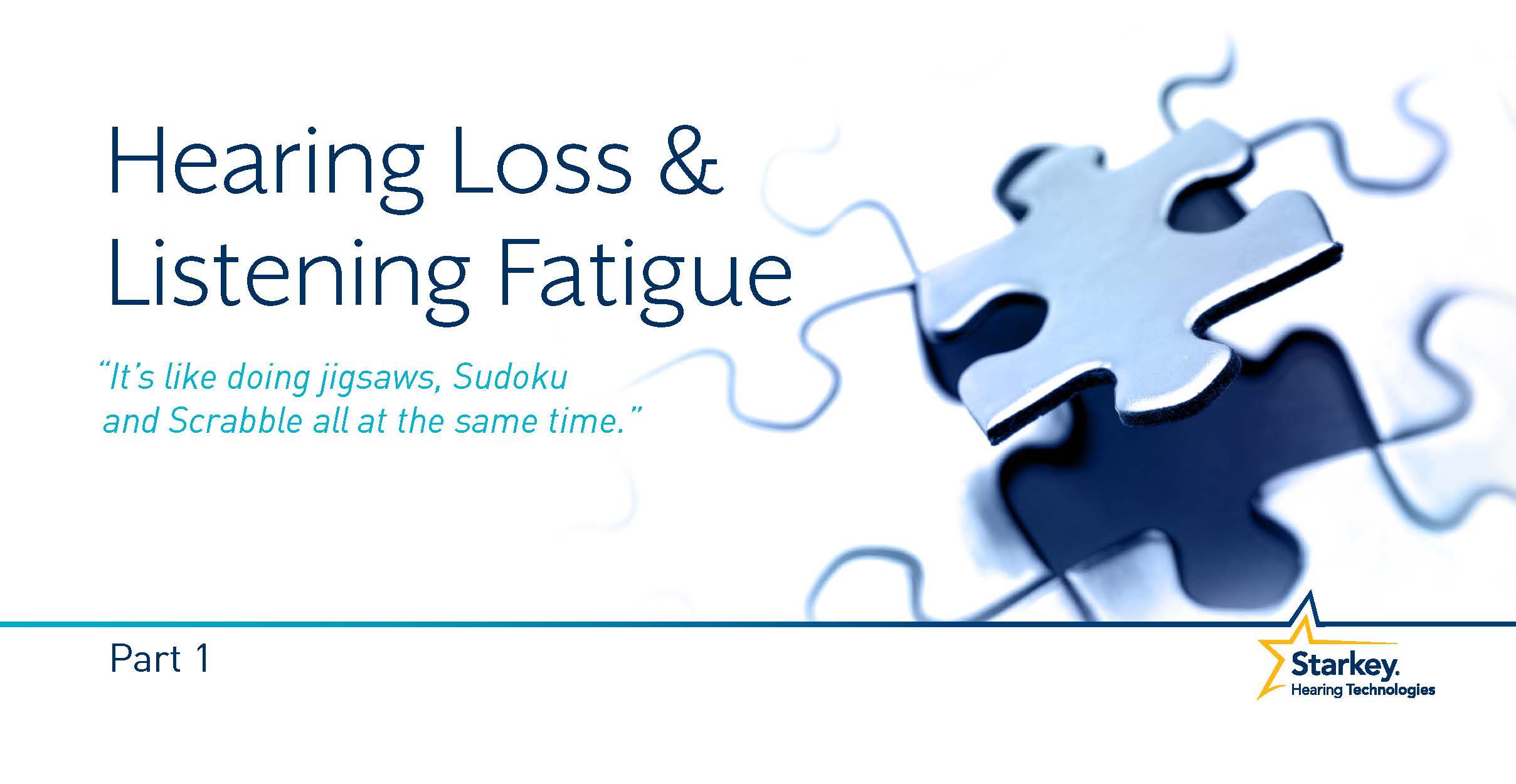
A recent study by Phonak looked at the relationship between listening effot and listening fatigue. The study findings suggest, wearing hearing aids may reduce your listening fatigue and increase reaction times. While concentration and fatigue naturally increase throughout the day for all humans, the study found that those wearing hearing aids had significant less fatigue and quicker reactions times than their age-matched/hearing loss matched peers. You can read the detialed study here.
The Relationship between Hearing Loss and Fatigue
- Cognitive Overload:
- Individuals with hearing loss often experience cognitive overload due to the extra effort required to understand and process speech and environmental sounds.
- Straining to hear and constantly focusing on deciphering sounds can lead to mental exhaustion, resulting in increased fatigue.
- Listening Effort:
- Hearing loss necessitates increased listening effort, as individuals must concentrate harder to discern speech from background noise or in challenging listening situations.
- This heightened effort, sustained over extended periods, can lead to mental fatigue and decreased energy levels.
- Stress and Anxiety:
- The communication difficulties associated with hearing loss can induce stress and anxiety in affected individuals.
- Constant worry about missing important information or misunderstandings can elevate stress levels and contribute to overall fatigue.
- Social Isolation:
- Hearing loss can lead to social isolation as individuals may struggle to engage in conversations or participate in social activities.
- The lack of social interactions and reduced communication can result in emotional fatigue and feelings of loneliness, further contributing to overall fatigue.
Strategies for Managing Fatigue
- Use Assistive Listening Devices:
- Assistive listening devices such as hearing aids or cochlear implants can help alleviate the listening effort associated with hearing loss, reducing cognitive overload and fatigue.
- Utilizing Bluetooth accessories or FM systems to directly stream audio signals to hearing aids can also improve speech understanding and reduce the strain on the listener.
- Practice Effective Communication Strategies:
- Employing effective communication strategies can reduce listening effort and improve overall communication.
- These strategies may include face-to-face conversations, reducing background noise, asking for repetitions or clarification, and utilizing visual cues such as lip-reading or gestures.
- Take Regular Breaks:
- Schedule regular breaks throughout the day to rest your mind and recharge.
- Engage in activities that relax and rejuvenate you, such as taking short walks, practicing deep breathing exercises, or pursuing hobbies that bring you joy and reduce stress.
- Seek Emotional Support:
- Reach out to support groups or counseling services specifically tailored for individuals with hearing loss.
- Sharing experiences, concerns, and coping strategies with others who understand your journey can provide emotional support and alleviate the mental fatigue associated with hearing loss.
- Prioritize Self-Care:
- Prioritize self-care activities such as maintaining a healthy lifestyle, getting sufficient sleep, eating a balanced diet, and exercising regularly.
- Taking care of your overall well-being can improve energy levels, reduce stress, and combat fatigue.
Hearing loss can have far-reaching effects on an individual’s life, including increased fatigue levels. Understanding the relationship between hearing loss and fatigue is crucial for effectively managing the condition. For more information about managing hearing loss check out the American Academy of Audiology‘s website. Remember, consulting with a hearing healthcare professional can provide personalized guidance and support in managing hearing loss-related fatigue.
